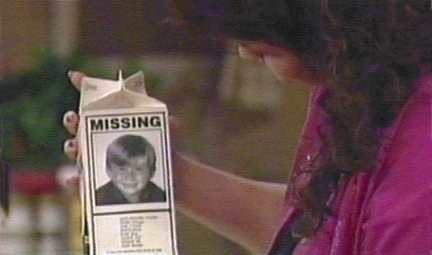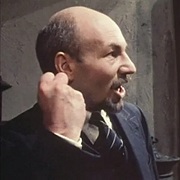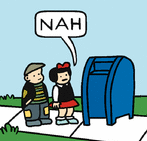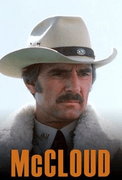|
DR FRASIER KRANG posted:was there ever a married with children where Al moved out? Yes, one of the two parters. e: 3 parter. Season 11, episodes 14-16. "Breaking Up Is Easy To Do". Al moves into a lovely apartment and Peggy dates a new guy that wants the family to get jobs https://www.youtube.com/watch?v=xkjjtBOztwc Mantis42 has issued a correction as of 08:54 on Dec 8, 2023 |
|
|
|

|
| # ? May 26, 2024 20:59 |
|
Good Soldier Svejk posted:For All Mankind is pretty okay on the plus side they seem to have gotten rid of that whole incredibly weird mrs robinson subplot that no one liked or wanted but on the negative side ed appears to be having a romance with a russian cosmonaut half his age and im just going uhhh why
|
|
|
|
DR FRASIER KRANG posted:I'm interested in watching episodes of lovely stupid tv that are specifically about divorced dudes living in crappy apartments. While there's an overall theme of 'lol these dudes took their marriages for granted and can barely survive on their own' Niles is kind of a funny one given his specific circumstances, and overall his divorce being pretty much the opposite of what nearly all TV divorces are like. Also the fancy heritage listed apartment he ends up moving into has an interesting mirror to Frasier's, with a cosy, almost hobbity feel to it. (and also is clearly the ski lodge set mixed around)
|
|
|
|
I like the spin they had on Reba. Her ex-husband cheated on her with his secretary, half his age, and then arrogantly tries to re-form the family he tore apart by constantly bringing his new wife and child over to Reba's house and making it crystal clear to everyone that they are now part of a bigger, happier family. I think there was a subplot where he pissed off his new wife and was just a man without a country for a while, living out of his car eating fast food and just aimlessly showing up at his former wives' houses and hoping they'll let him in and make him dinner
|
|
|
|
Mantis42 posted:Yes, one of the two parters. It went for 11 seasons? I noped out when it was being broadcast around the time they introduced that annoying kid Seven. That was season 7 and the shark jump moment demonstrating it had run it's course.
|
|
|
|
Marenghi posted:It went for 11 seasons? I noped out when it was being broadcast around the time they introduced that annoying kid Seven. That was season 7 and the shark jump moment demonstrating it had run it's course. the kid was a dream, bro Some Guy TT posted:but on the negative side ed appears to be having a romance with a russian cosmonaut half his age and im just going uhhh why calm down. ed and the reactionary backslider are just getting high
|
|
|
|
https://www.tiktok.com/embed/7309884620923817246
|
|
|
|
the social media team must of been scrambling after that 9/11 thing came out
|
|
|
|
indigi posted:the social media team must of been scrambling after that 9/11 thing came out they shouldn't have it was a good point
|
|
|
|
DR FRASIER KRANG posted:there's the Shangri La Apartments episode of Frasier oh my god this is so sad lol https://www.youtube.com/watch?v=1xnJQ96juX8
|
|
|
|
"You don't know what you're doing. Just drop it and kick it over here." ON CROY ABH
|
|
|
|
Some Guy TT posted:on the plus side they seem to have gotten rid of that whole incredibly weird mrs robinson subplot that no one liked or wanted Yeah, he's old enough to be her dad. She's a real sicko.
|
|
|
|
Pepe Silvia Browne posted:they shouldn't have it was a good point kinda, but they only had a 75% success rate. couldn't close out, which has been the Bills' problem
|
|
|
|
indigi posted:kinda, but they only had a 75% success rate. couldn't close out, which has been the Bills' problem that's why he was asking them what challenges they faced, to see what they could have done better!
|
|
|
|
somewhere i feel like our wires got crossed. you're saying "Never Forget", I'm saying "let's review the 9/11 tape", and you're getting mad at me??
|
|
|
|
hahahaha
|
|
|
|
Pepe Silvia Browne posted:somewhere i feel like our wires got crossed. you're saying "Never Forget", I'm saying "let's review the 9/11 tape", and you're getting mad at me?? completely whiffed on picking up the blitz in pennsylvania
|
|
|
|
Greg12 posted:the kid was a dream, bro Seven wasn't a dream, Peg's pregnancy was a dream. Seven just vanished. 
|
|
|
|
Action Jacktion posted:Seven wasn't a dream, Peg's pregnancy was a dream. Seven just vanished. Then what happened to Steven
|
|
|
|
every single zoomer influencer is a chud in South Florida.
|
|
|
|
They've gotta kill off Ed this season, dude will be like 80 in the 2010's and was shown to be shooting up T LAST season, same with Margot Kinda curious who will be the "protagonist" after the timeline leaves all the original cast in the dust.
|
|
|
|
Justin Tyme posted:They've gotta kill off Ed this season, dude will be like 80 in the 2010's and was shown to be shooting up T LAST season, same with Margot Thawed out John Lakeman
|
|
|
|
Justin Tyme posted:They've gotta kill off Ed this season, dude will be like 80 in the 2010's and was shown to be shooting up T LAST season, same with Margot Pretty obviously Miles. Kebbel's got second billing in the credits.
|
|
|
|
https://www.bfi.org.uk/sight-and-sound/polls/50-best-films-2023 https://www.youtube.com/watch?v=8d50N4APC10
|
|
|
|
wrong thread
|
|
|
|
How is Tar on that list? It came out in 22.
|
|
|
|
Weembles posted:How is Tar on that list? It came out in 22. Tar moves slowly
|
|
|
|
Weembles posted:How is Tar on that list? It came out in 22. prob 2022 in the uk fabelmans and saint omer also 2022
|
|
|
|
Wraith of J.O.I. posted:prob 2022 in the uk Oh yeah - I've seen these Sight and Sound lists before, but I never noticed that they were put out by a magazine published by the BFI. Weembles has issued a correction as of 00:00 on Dec 9, 2023 |
|
|
|
Barbie at number 5? Come on
|
|
|
|
McCloud posted:Barbie at number 5? Come on Yah it should be #1.
|
|
|
|
a lot of goons needs to see #17
|
|
|
|
Pepe Silvia Browne posted:a lot of goons needs to see #17 also #15 fallen leaves
|
|
|
|
Very confused at what Talk To Me is doing on this list. I enjoyed it, but it's not thaaaat great.
|
|
|
Some Guy TT posted:on the plus side they seem to have gotten rid of that whole incredibly weird mrs robinson subplot that no one liked or wanted By killing both of the people involved in the former. Ed and Svetlana, eh, it's plausible that could happen, I don't really have too big of an issue with it and it's not, as yet, a centerpiece of the plot. They're both on Mars, and Ed's been there for idk, almost a decade? Being physically isolated like that leads to hookups. Happens all the time. Maybe not with quite that age gap, if only because things like military deployments and oil rigs and research stations and the like generally don't have people that old around, but it's plausible.
|
|
|
|
|
“Death of a Hero” it said in big black letters across the front of the Daily Mirror, and if I hadn’t known already I’d have expected a story about a policeman or soldier in Northern Ireland. The media response to John Lennon’s death was overwhelming as what began as a series of private griefs was orchestrated by disc jockeys and sub-editors into a national event, but it was difficult to decide what all this mourning meant. The media themselves seemed less slick than usual, more ragged in their attempts to respond to a genuinely popular shock. What came through was not just Beatle-nostalgia but a specific sadness at the loss of John Lennon’s Beatle qualities — qualities that never did fit easily into Fleet Street ideology. “The idea,” as Lennon once told Red Mole, “is not to comfort people, not to make them feel better but to make them feel worse.” The Mirror, its populist instincts currently sharpened by Thatcherism, got the mood most right. John Lennon was certainly the nearest thing to a hero I’ve ever had, but though I knew what this meant in fan terms (buying Beatles records at the moment of release, dreaming about my own Lennon friendship — “I’ll never meet him now,” said one friend when she heard the news) I’d never really stopped to think what the pleasure I got from Lennon’s music had to do with heroism. “What does it mean?” called another long-ago friend who knew I’d share his sense of loss. He rang off without an answer and I watched the television tributes and tried to make sense of a sadness that was real enough but according to the politics of culture I usually pursue seemed somehow shameful and self-indulgent. Why should I feel this way about a pop star? The answer began to push through the obituaries. John Lennon was a hero because he fought the usual meanings of pop stardom, because he resisted the usual easy manipulations, and in the newspaper editorials, the radio interviews, the specially illustrated supplements with full color souvenir portrait, the struggle continued — everyone was still claiming John Lennon as their friend, their cultural symbol. As Bryan McAllister put it in his Guardian cartoon, “One has only to look at the people who claim to have known John Lennon to understand perfectly why he went to live in America.” As John Lennon put it himself in 1971: One had to completely humiliate oneself to be what the Beatles were, and that’s what I resent. I didn’t know, I didn’t foresee. It happened bit by bit, gradually, until this complete craziness is surrounding you, and you’re doing exactly what you don’t want to do with people you can’t stand — the people you hated when you were ten. The most repulsive of the Lennon friends (“I knew him quite well”) was Harold Wilson, who explained on The World At One that he gave John an MBE “because he got the kids off the streets.” “But wasn’t he a bad example,” snapped Robin Day. “Didn’t he encourage youngsters to take drugs?” “Ah yes,” agreed Wilson, “he did go wrong, later.” Lennon went wrong and it seemed then, and it still seems to me now, that a Beatle going wrong was an important political event— John Lennon knew just what sort of hero Harold Wilson wanted him to be: Keep you doped with religion and sex and TV, And you think you’re so clever and classless and free, But you’re still loving peasants as far as I can see, A working-class hero is something to be. There’s room at the top they are telling you still, But first you must learn how to smile as you kill, If you want to be like the folks on the hill, A working-class hero is something to be. Yes, a working-class hero is something to be, If you want to be a hero just follow me, If you want to be a hero well just follow me. (“Working Class Hero”: © Northern Songs Ltd) John Lennon was a 1950s not a 1960s teenager. He started playing rock ’n’ roll in 1956, the year of Suez, but the music fed his sense of adult rottenness in a more personal way — rock ’n’ roll was a sound made to accompany struggles at home and school, struggles against the insinuating pull to a career, to good marks and respectability. John Lennon became a teddy boy and a musician as part of his erratic opposition to the expected grateful conformities of a working-class grammar schoolboy. So did hundreds of other 1950s schoolboys — Lennon was five days older than Cliff Richard — but they mostly lost their edge, softened by showbiz’s own notions of steadiness and respectability. “Teddy boys,” as Ray Gosling puts it, were “tidied up into teenagers. The youngsters sang one good rock song and the next moment they were in pantomime and all-round entertainment on the pier.” Cliff Richard called his 1960 autobiography It’s Great to Be Young, and by then his way of being young seemed the “natural” teenage way to be. John Lennon didn’t have such a great youth. For a start he lived in Liverpool, a cosmopolitan port with musical advantages (American R&B records could be heard in Liverpool whatever the metropolitan pop industry’s successes in cleaning up white rock’n’roll) and unique material opportunities — Liverpool had clubs where groups were employed to play grown-up gutsy music. There was a public nightlife, an aggressive way of leisure that had survived television and the rise of family consumption. The Beatles’ first manager, Allan Williams, explains the Liverpool Sound in terms of gangs and fights and territorial claims — the Beatles always had to stand for something, and they learnt to “entertain” in circumstances far removed from the London Palladium. Whether in Liverpool or Hamburg, the music had to be loud and hard — there was no space for subtlety or self-pity. Equipment was poor, songs were built round the combined beat of drums, bass, and rhythm guitar (Lennon’s own pivotal role), round the combined voices of Lennon and McCartney. The Liverpool noise was hoarse and harsh, an effect of night after night of long, unrelieved sets. While Tommy Steele and Cliff Richard were becoming family entertainers, the Beatles were learning street survival tactics, and when they hit showbiz their arrogance (and their defenses) were intact. As Liverpool’s now veteran musicians remembered after Lennon’s death, what was inspiring about the Beatles in their Cavern days was the certainty with which they claimed American music for themselves, and the most striking sign of this confidence was John Lennon’s voice. The Beatles sang American music in a Liverpool accent — nasal rather than throaty, detached, passion expressed with a conversational cynicism. Lennon’s genius is usually described by reference to his songwriting ability, but it was his voice that always cut through. He conveyed a controlled, forthright intimacy that enabled him to rock out in early days with a barely suppressed fury and in later, post-Beatle days to express remorse and optimism equally grippingly. Beatle fans “knew” Lennon above all through this singing voice, and perhaps all his obituarists needed to say was that he was the only rock singer who ever sang “we” convincingly. Certainly, when the Beatles finally had their extraordinary success story, they were different from other pop stars. Their qualities were not those of showbiz — they came across as cynical, arrogant, restless. Beatle trappings came to represent an attitude as well as the usual fan fervor, and the Beatles appealed to a mass audience that had previously been uneasy in its relationship to pop — sixth form, student youth. The Beatles were the first English pop group that didn’t insult the intelligence. They made an “underdog” sound (to use Eric Hobsbawm’s description), pilfered from black American sources, and retained a grittiness, an awkwardness that couldn’t quite be swallowed up in commercialism. John Lennon was, in this context, the most obviously gritty, intelligent Beatle — the one with edge. He was street sharp as much by choice as necessity. He was a grammar schoolboy who for all his rebelliousness drew on a grammar schoolboy’s intellectual arrogance; he was an art school student who retained an art school student’s radical cultural ambitions; he was a bohemian who had learned to scoff at “nowhere” people in Hamburg’s Reeperbahn. It was Lennon who leapt more quickly (more desperately?) than the other Beatles at the unfolding possibilities of 1960s rock and youth culture, and the importance of the Beatles in 1966–68 was not that they led any movement, but that they joined in. They became (John Lennon in particular) for all their established star status, comrades in the mid-’60s “liberation” of leisure. What’s more, Lennon confirmed what I believed then and believe still — that it is not possible to separate the hippy aspects of 1960s youth culture, the drugs and mind games and reconsiderations of sexuality, from the political process that fed the student movement, the antiwar movement, the women’s movement, gay liberation. It was thanks to his hippy commitments, to his open response to Yoko Ono’s anti-pop ideas, that John Lennon survived the Beatles experience to make his most political music as the ’60s came to an end. The week John Lennon was shot the Clash released a three-record album called Sandinista! Infuriating, indulgent, exciting, touching, packed with slogans and simplicities, guns and liberation, images of struggle and doubt, it is a wonderful tribute to Lennon’s influence — a record that would have been impossible to imagine without him. Lennon believed more intensely than any other rock performer that rock and roll was a form of expression in which anything could be said, but more importantly (in this sense he was a “proto-punk”) he believed too that rock and roll was the only form of expression in which many things — to do with growing up working class — could be said. His music (like the Clash’s) involves an urgent eagerness to be heard (an eagerness that often obscured what was actually being said). As a sixteen-year-old, John Lennon heard in rock ’n’ roll an antiauthoritarian voice that everywhere else was silenced. This voice — essentially youthful — is still heard publicly only in rock music. Where else, for example, is the young’s own experience of youth unemployment expressed or dealt with except in the music of local bands, on the occasional independent record on John Peel’s show? Much of Lennon’s musical life was about keeping this voice heard, keeping its edge cutting through the ideological trappings of pop, the commercial packaging of the Beatles, the ceaseless labels of the exploiters. In coping with the trivializing tricks of the pop medium, John Lennon faced many of the issues addressed later by the punks. Yoko Ono’s position was particularly important in making the problems of Lennon’s star position explicit. She confronted him with the taken-for-granted masculinity of the rock ’n’ roll voice, she asked questions about musical meaning itself (particularly about the rock conventions of spontaneity and realism, about the “truth” of the singing voice), she focused the problem of the rock relationship between the public and the private. The energy of Lennon’s music had always come from this tension — between the private use of song (as a way of handling emotion, a celebration of personal powers) and a sense of public duty. Lennon was committed to public music, accepted his “responsibility” to his audience (in a way that Bob Dylan, for example, did not). This was apparent not just in collective songs like “All You Need Is Love” and “Give Peace A Chance” but also in Lennon’s continuing attempts in the early 1970s to use his songwriting skills to illuminate everything that was happening around him. Public music depends on a material community as well as an abstract commitment, and by the mid-’70s, Lennon, like most of the original rock stars (especially those isolated in international stardom), had lost this sense of audience (it took the punks to revive it). Double Fantasy, his comeback LP, reflected his withdrawal — comfortable and happy in its commitment to his wife and child and friends, it lacked the political tension that had always come from Lennon’s nervous need to account for his feelings publicly too. This was just a record to be sold. There was nothing, apparently, to be said about marriage and fatherhood that mattered enough to make Lennon challenge his audience again. John Lennon understood the contradictions of capitalist music making, but he didn’t solve them, and he rarely pretended that he wasn’t involved in a money-making process. “Imagine no possessions,” he sang, but I never thought he could. There was a sloppiness to John and Yoko’s concept of peace and love and changing things by thinking them so, that concealed what mattered more — the Lennons had an astute sense of the mass market and how it worked. Their happenings at the end of the 1960s drew not only on Yoko Ono’s experience as a performance artist but also on John Lennon’s own cynical appreciation of the peculiarities of the British popular press (Malcolm McClaren applied a similar combination of cynicism and artiness to his manipulation of the media with the Sex Pistols in 1977). “Thank you very much for talking to us,” murmured Andy Peebles humbly at the end of Radio l’s final Lennon interview. “Well,” said John, “We’ve got a new record out and I needed to talk to people in Britain.” The central contradiction of John Lennon’s artistic life (of any attempt to make mass music in a capitalist society) lay in the uneasy enthusiasm with which he packaged and sold his dreams. The problem for the working class, he told Red Mole in 1971, is that “they’re dreaming someone else’s dream, it’s not even their own.” The problem for a working-class hero is that he too is defined in other people’s dreams. John Lennon was murdered by a fan, by someone who pushed the fantasies that pop stardom is designed to evoke into the appalling stupidity of a madness. The problem is that the grief that the rest of us Beatle fans then felt drew on similar fantasies, and the bitter irony is that John Lennon, whose heroism lay in his struggle against being a commodity, whose achievement was to express the human origins of pop ideas, should be trapped, finally, by a desperate, inhuman, nightmarish version of the pop fan’s need to be a star.
|
|
|
|
the Beatles were cultural colonizers stealing from America Africa and India and claiming it as their own just like their forefathers
|
|
|
|
yes the beatles were famously all about dominating other cultures and making fools of them
|
|
|
|
veepfake posted:yes the beatles were famously all about dominating other cultures and making fools of them Cultural race mixing is a class 1b Problematic. Please refer to your genetic passport to determine if you are allowed to be friends with Ravi Shankar.
|
|
|
|

|
| # ? May 26, 2024 20:59 |
|
 https://www.theonion.com/man-always-gets-little-rush-out-of-telling-people-john-1819578998
|
|
|





























